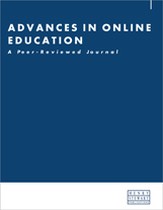Navigating seas of change: Surfing higher education’s wild generative AI wave
Abstract
Adoption of various generative artificial intelligence (GenAI) technologies is inevitable in the long term, but earlier engagement will give educators a seat at the table to guide the tech towards supporting transformative adaptation rather than another race to the bottom favouring the lowest common denominator. This paper unpacks the diffusion of AI in higher education and the spectrum of discourse that has accompanied this timely and disruptive trend. It draws analogies with other socio-historical, technology-driven change moments in higher education, such as writing and study technologies, comparing reactive discourse from those moments with that happening presently around AI. The paper argues that these discourses have considerable impacts on teaching and learning beyond those of the tools themselves and recommends productive pathways for navigating the emerging technology landscape, now and into the future.1
The full article is available to subscribers to this journal (subscription is free).
Author's Biography
Sean Anderson PhD is a Professor of Environmental Science and Resource Management at California State University, Channel Islands (CSUCI). He is a broadly trained ecologist and conservation scientist who works on a variety of projects spanning ecological fragmentation and restoration to environmental justice and the impacts of natural disasters to emerging high-tech and open-source technologies to aid conservation. Sean co-leads the Aerial and Aquatic Robotic Research Group and helms his own PIRatE Lab at CSUCI. His conservation tools have been deployed across the globe and insights applied to a wide range of environmental challenges. Recent work includes developing environmental mitigation policy guidelines for the state of California and multilingual chatbots to help diverse communities understand air quality. He is an elected or appointed member of numerous state, federal and international governmental and scientific advisory boards including the Santa Monica Mountains Conservancy, Ventura County Resource Conservation District, The Metals Company and the International Union for the Conservation of Nature. Sean received his Bachelor’s degree from UCSB, PhD from UCLA, and was a postdoctoral and then research fellow at Stanford University before moving to Ventura County to help launch CSUCI two decades ago.
Stacey Stanfield Anderson Stacey Anderson PhD is Associate Professor and Chair of English, Composition Director and Faculty Development Fellow at California State University, Channel Islands (CSUCI), the youngest campus in the largest state university system in the US. A true Gen Xer, she has witnessed the evolution of personal and academic technologies throughout her own education and via her experiences as a college instructor, primarily in writing courses, since 1995. She completed a BA in interdisciplinary humanities at University of San Diego, an MA in English at Loyola Marymount University and a PhD in English at Claremont Graduate University, before becoming a teaching fellow in the Program in Writing and Rhetoric at Stanford University under the direction of Andrea Lunsford. She joined CSUCI in 2005, just three years after the university was founded. Her scholarship focuses on interdisciplinary collaboration, sustainability, scientific literacy and communication, equitable teaching and learning conditions, and bridging the gap for underserved students in the transition from high school to college. At CSUCI, she has been a leader in curriculum development and assessment and a champion of continuous improvement, particularly in the realm of leveraging digital technologies to support equity and access for all learners.
Lorna Gonzalez PhD has been an educator for 20 years, in both secondary and higher education. Currently serving as Assistant Vice President for Digital Learning at California State University, Channel Islands (CSUCI), Lorna oversees a professional team of learning designers, academic technologists and specialists in academic media and accessibility. She contributes leadership to university-wide digital learning and innovation initiatives, and she has published over 20 articles and book chapters about emerging technologies and learning for professional and scholarly venues. Her research explores questions about how to demystify ‘ways of thinking and doing’ (literate practices) with emergent technologies, genres and cultural contexts, particularly within higher education.
Citation
Anderson, Sean, Anderson, Stacey Stanfield and Gonzalez, Lorna (2025, March 1). Navigating seas of change: Surfing higher education’s wild generative AI wave. In the Advances in Online Education: A Peer-Reviewed Journal, Volume 3, Issue 3. https://doi.org/10.69554/FVJL5830.Publications LLP
